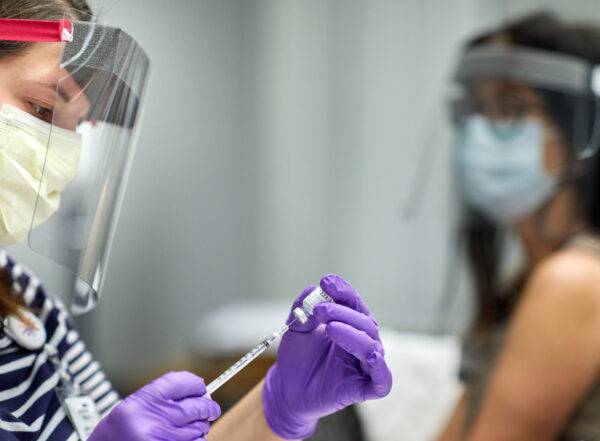ADHD meds may help pregnant patients control opioid use disorder
Researchers aim to provide guidance on ADHD drugs for patients with opioid use disorder
 GETTY IMAGES
GETTY IMAGESResearchers at Washington University School of Medicine in St. Louis found that pregnant people who took ADHD medications while also being treated for opioid use disorder continued to take medication to address their opioid use disorder about two months longer than patients who stopped taking ADHD medications. These patients also required fewer emergency room visits related to substance use disorder.
Opioid overdoses for pregnant people are at an all-time high in the United States, even as overall numbers are improving. Attention deficit hyperactivity disorder (ADHD) is highly correlated with substance use disorders, yet treatment protocols to help expecting parents manage opioid use disorders and ADHD together are essentially nonexistent.
New research from Washington University School of Medicine in St. Louis may help change that. A study published in Nature Mental Health indicates that patients with opioid use disorders and ADHD who remain on their ADHD medications during their pregnancies are far more likely to adhere to treatment for opioid use, and far less likely to overdose, than are patients who stop taking ADHD medications.
This research is a step toward developing urgently needed resources and treatment guidelines, said Kevin Xu, MD, an assistant professor of psychiatry and the study’s first author. “We have really never seen such rates of overdose among reproductive-age and pregnant people,” Xu said.
According to data from the National Institutes of Health (NIH), rates of overdose deaths doubled among pregnant and postpartum people in recent years (rising to 6.1 deaths per 100,00 in 2021, from 3.1 deaths per 100,000 in 2018). Opioid overdose accounts for about 10% of all pregnancy-related deaths. Despite research indicating that nearly one in four people diagnosed with ADHD also has a substance use disorder, there is little research available to physicians or their patients to guide how they can safely manage both conditions during pregnancy.
That lack of research struck psychiatry resident Tiffani Berkel, MD, PhD, as she was trying to advise patients navigating their pregnancies, which led her to approach Xu and propose this study.
“It’s very common for pregnant patients to ask their doctors, ‘Is this medication safe?’” Berkel said. “The physicians have to say, ‘We don’t know.’ That’s not very reassuring to a pregnant person. They have to do this risk-benefit analysis themselves.”
By examining de-identified prescription and Medicaid databases, Berkel, Xu and their co-authors focused on 168 pregnant patients who were receiving methadone or buprenorphine for opioid use disorder treatment and taking medications for ADHD. They analyzed how long the patients maintained their opioid use disorder treatments and how often they required emergency room care related to opioid use.
Because methadone clinics frequently require patients to stop taking any ADHD medications, there were not enough patients in that group to do a proper analysis. For patients treated with buprenorphine, the differences between patients who remained on their ADHD medications during their pregnancies and those who discontinued were striking: Those who continued with their ADHD medications stayed roughly two months longer on buprenorphine than did patients no longer taking ADHD medications. In line with that result, the researchers found there were fewer emergency room visits related to substance use disorder among patients taking ADHD medications: 41% of patients who continued their ADHD treatments went to the ER compared with 54% of those who stopped.
The reasons for the difference will need further investigation, but Berkel said one potential explanation is that ADHD drugs help control impulsivity and are therefore likely to improve patients’ ability to manage their substance use disorder treatments – with the additional benefit of improved attendance for regular pregnancy checkups.
Co-author Jeannie Kelly, MD, an associate professor of obstetrics & gynecology in the Division of Maternal-Fetal Medicine & Ultrasound, said that research like this serves a real-world medical need to better understand the potential consequences of discontinuing ADHD treatments for patients with substance use disorders. Kelly, Xu and Berkel treat patients at Barnes-Jewish Hospital.
“Treatment of ADHD is a huge knowledge gap in obstetrics and even more so in patients with substance use disorder,” Kelly said. “In obstetrics, a knowledge gap frequently leads to reluctance to treat because of unknown risks to the fetus. However, it’s also really important to discuss the risks of not treating, because untreated disease also can have huge implications for mom’s and baby’s health.”







